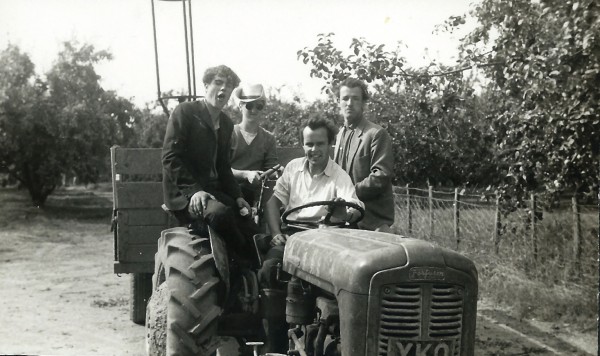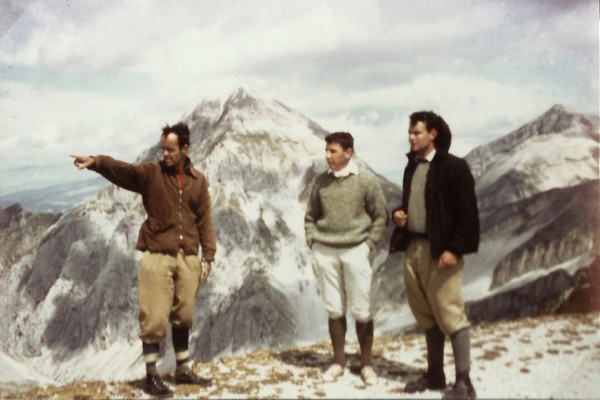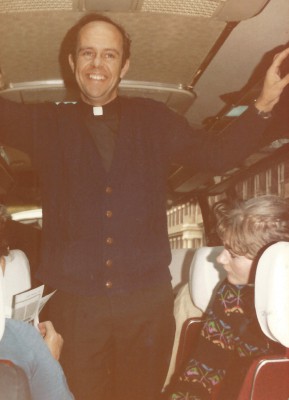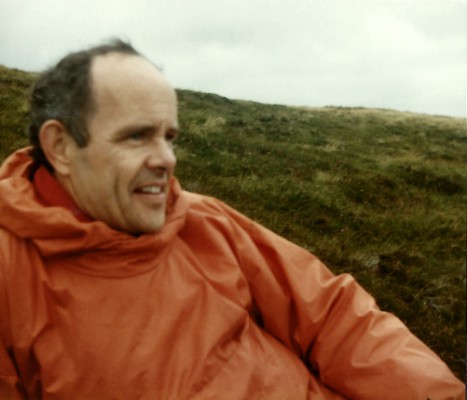About Tim Firth
Born in 1938 in Ealing. Shortly afterwards his parents, Michael and Eileen, moved to Hove. His brother, Anthony (Tony), was six years older than him.
At the time Michael Firth was Director of Establishments at the Inland Revenue. In 1940 the Inland Revenue was evacuated to North Wales. The family lived in Deganwy near Llandudno and Tim’s first school was there. During this time Tim became fluent in Welsh as well as English, although later he could not remember any of it.
After WWII, the family moved back to Hove in Sussex. Tim went to St Christopher’s school and developed his passion for cricket.  At 13 he went to Ampleforth College in Yorkshire, beginning in Junior House and moving to St Aidan’s House and became Head of House. Studied history at Lincoln College, Oxford University.
At 13 he went to Ampleforth College in Yorkshire, beginning in Junior House and moving to St Aidan’s House and became Head of House. Studied history at Lincoln College, Oxford University. 
While at university he met Derek Warlock, later Archbishop of Liverpool, who encouraged him to offer himself for the Roman Catholic priesthood. He was sent as student of the Westminster diocese to the Venerable English College in Rome. He was seven years in Rome where he played as hard as he studied – cricket, rugby and walking in the Abruzzi mountains.  He was ordained priest in October 1967.
He was ordained priest in October 1967.
On return to Britain, he was curate at Holy Trinity, Brook Green, Hammersmith. Then appointed to teach theology and philosophy at the seminary, Allen Hall at St Edmund’s College, Ware, Hertfordshire. Tim had a great and most positive impact on the seminary students. He also became involved with the Search and Encounter movement and made many friends in the area including the Mearing family, Therese, Pat, Brendan, Dominic and Tim. He was directly involved in moving Allen Hall to London.
After Fr Basil Hume was appointed Archbishop of Westminster, Tim was made Vicar General of Westminster Diocese, one of the youngest vicar generals. He was instrumental in setting up the system of area bishops in the diocese, was Secretary of the Bishop’s Conference of England and Wales and helped prepare the visit of Pope John Paul II to Britain in 1982.  He was also instrumental in creating the National Pastoral Congress in 1980. In 1983 returned to Holy Trinity, Brook Green as parish priest.
He was also instrumental in creating the National Pastoral Congress in 1980. In 1983 returned to Holy Trinity, Brook Green as parish priest.
In 1982 Tim’s mother, Eileen, died. And he began to reconsider his situation as a priest. In 1984 he resigned from the priesthood and eventually found a job as Recruitment Manager for Touche Ross, a major accountancy firm in the City of London. Later this role changed to International Human Resources manager as the firm expanded and became Deloittes.
In 1985 Tim married Elisabeth Tooms and their first home was a small flat in the Wimbledon area. In 1988 they moved to West Sussex, first Billingshurst and then Pulborough while still working in London. In 1991, Tim got his dispensation from the Catholic Church which meant that they could have a church wedding, which they did in September 1991. Tim’s father, Michael, died in 1991.
In 1999 decided to move to share Elisabeth’s mother’s house near Slinfold – a mutually beneficial arrangement. The family had now grown to include two cats and a horse, Rosie.
In 2001, Tim took early retirement from Deloittes. He worked for the Catholic Church in England and Wales setting up the scheme for the protection of children and vulnerable adults implementing the Nolan report.
Over recent years Tim became involved with a number of groups reflecting his interest in the arts, spirituality and interfaith matters and the environment. Some of them are:
Renewal Arts
Initiatives of Change and the conference centre at Caux, Switzerland
CANA
Quo Vadis
HIFF
Faiths in Sussex,
Unitarian Church,
Wrekin Trust
Green Spirit
Intermission Theatre and Youth Theatre
During this time he developed his ideas and reading into a book which was published privately in 2012 with the title ‘God’s Favourite Colour is Tartan’.
The last three years were marked by the increasing need to care for Elisabeth’s mother, Mary, who had developed dementia. Mary moved into permanent residential care at the beginning of February 2014. In April 2014 Tim was diagnosed with lung cancer. After a few weeks struggle with a particularly vicious form of the disease, Tim died at home in the early hours of Monday, 19th May.